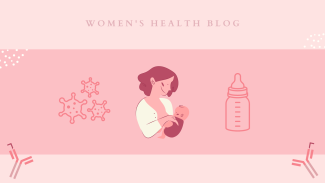Author: Carrie Miller, Ph.D., RN, CNE, CHSE, IBCLC, Seattle University-College of Nursing | Editors: Negin Nia, Arrthy Thayaparan (Blog Coordinators), and Kiranjot Jhajj (Blog Reviewer)
Published: May 6th, 2022
We exist because someone fed us when we were born. In the beginning of our lives, our caregivers make the best decisions possible on our behalf. A newborn is influenced by the environment that they are born in, and COVID-19 can impact that, whether they like it or not. So, how can the breastfeeding relationship thrive as we continue to battle the COVID-19 pandemic?
Birth Practices
The goal is for labour to be as safe as possible for the birthing parent and the baby. No matter how delivery occurs, it is essential there is time for the baby and parent to bond, feel safe, and protected. Birth practices vary globally, and giving birth is intimate, personal, and remembered forever. Hospital and Birthing Center policies are intended to protect and maintain safety, but we have to carefully consider the impact of these practices.
In March 2020, COVID-19 was declared a pandemic. Birthing parents were isolated without adequate labour support because of fear of transmission. Parents and newborns were separated if the parent was COVID-19 positive or suspected to have the virus. Hospitals and Birth Centers scrambled to change policies out of safety concerns. COVID-19 policies removed trusted support from the labouring person's side and reduced their ability to be part of the overall decision-making process.
There are four tenets any parent needs to consider before giving birth: being able to know what to expect during labour and delivery, having trusted support persons in attendance, being cared for by skilled and competent caregivers, and being part of the decision-making process. So, what is essential to get breastfeeding off to the best start with COVID-19 around?
Golden Hour
The first moments of life set the tone for the next several days, weeks, and months. The Golden Hour is when a medically stable infant is placed on the birthing parents' chest right after birth. Throughout Golden Hour, a newborn will self-regulate heart rate and respiratory rate and stay warm against a birth parents' chest. The first feeding at the breast can also take place during this time. During the height of COVID-19, babies were separated from their birth parents if there was a confirmed or suspected diagnosis.
If a parent is COVID-19 positive, an infant can still be placed on the birthing parent's chest if the parent is well enough. Currently, the Centers for Disease Control and Prevention recommends being masked if an infant is placed skin-to-skin.The American Academy of Pediatrics recommends maintaining normal couplet care [parent-infant dyad] with confirmed or suspected COVID-19 status. However, policies are constantly changing given the evolving knowledge around COVID-19.
Breastfeeding
The current recommendations recognize the importance of providing human milk to infants during COVID-19. The World Health Organization's current recommendation is to initiate breastfeeding no matter what the COVID-19 status is. The Centers for Disease Control and Prevention reports breastmilk is not likely to spread the virus to infants. If a lactating parent chooses to breastfeed, handwashing and wearing a mask is strongly recommended.
Furthermore, if a parent chooses to provide pumped milk, a trusted caregiver should provide the pumped milk to the infant if the lactating parent is COVID-19 positive. Parents can also discuss options with caregivers about protective practices. These include having someone help to care for the infant if needed, rooming-in with the infant, using good handwashing, wearing a mask when providing care to the infant, and staying six feet away whenever possible.
The possibility of transmitting COVID-19 through breastfeeding is uncertain. However, multiple studies such as ones by the American Academy of Pediatrics and Reproductive Health Journal suggest that the risk is low. The science also reveals that the benefits of breastfeeding outweigh the risk of not breastfeeding. Breast milk provides antibodies to protect a newborn against disease. The first feedings with colostrum establish the immune system, which is what protects the baby from the beginning well into childhood and ultimately adulthood. Colostrum contains the key immunologic components to establish the immune system and gut as it is rich in protein and nutrient-dense.
The first feedings to the newborn are small. The newborn has a tummy the size of a cranberry for the first few days, so a teaspoon can be a full feeding on day one. By day three of life, the newborn has a tummy as big as a ping pong ball and can most likely take about an ounce in a feeding. A newborn does not eat on a schedule either, so one must watch for feeding cues. A newborn may eat 6 to 8 times on the first day and may want to eat 12 times on the second day.
So, what can you do if a birthing parent needs to be separated from a newborn? Well, you can hand express or pump breastmilk. Even if you are COVID-19 positive, your colostrum and breastmilk are essential for a baby to have a good start.
Conclusion
A nourished newborn sets the tone for the future. Providing colostrum and human milk to an infant can create a pathway to a healthy start. The journey may be different than planned, but having a solid start is possible, no matter the circumstances. Even with COVID-19, the breastfeeding relationship can thrive if you take the right steps.
